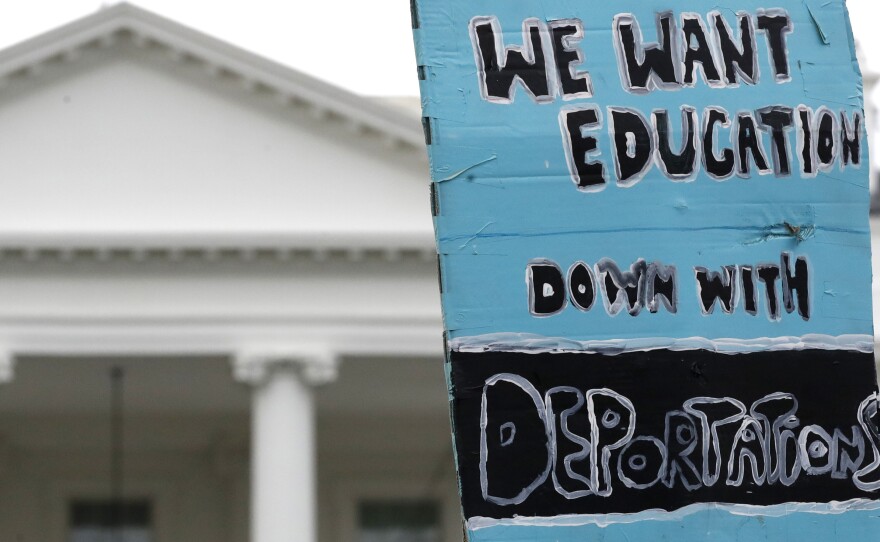Dan Lee rarely talks about his status as a DACA recipient. Apart from having close family and friend confidants, the secret of being in the country illegally has weighed heavily on Lee ever since he learned he didn't have the proper paperwork in high school while applying for a job.
In an interview with NPR's Michel Martin, Lee remembers being 15 and thinking "What is the point of me doing anything if I'm not going to able to have a career or be able to, I guess, be 'normal'?"
Lee's parents brought him to the U.S. from South Korea in the hopes of giving him an American education. From what he can gather from his parents, they tried to pursue citizenship but ended up falling victim to an immigration scam.
Lee is part of about 20 percent of DACA recipients who came to the U.S. from Asia. South Koreans make up the majority of that demographic.
Because of DACA, Lee was able to get the documents needed to get a job and apply for school. Today he's a fourth-year political science student at American University in Washington D.C.
With news that President Trump has rescinded DACA with a six-month delay, he wanted to speak out.
"There are 800,000 people just like me," Lee says. "People who have full-time jobs, attending school. They are the types of immigrants you want in your country."
Interview Highlights
On why his immigration application didn't go through
My parents, they were scammed by a supposed immigration attorney and [they] didn't speak English. They didn't know how the American system worked. They didn't know the laws here and they just assumed, "Oh, if we hire an attorney, everything will work out." Turns out it didn't.
On his life before DACA was introduced
I see that Congress has tried to tackle immigration reform so many times and they've mostly failed over and over again and I realized that there's just simply no hope and I was going like, "What is the point of me even trying in school? What is the point of me doing anything if I'm not going to able to have a career or be able to, I guess, be 'normal'?"
On waiting to learn the fate of DACA
It's like when you're on a chair and you lean a little too back and you're just about to fall, right? And it's like feeling that perpetual falling feeling. I just want to be able to know if I'm going to be able to keep what I built here. I want to be able to one day own a house, have a family, have a job and watch football on Sundays peacefully.
On challenging claims that DACA recipients are criminals and welfare babies
In order to receive DACA, you need to pass a criminal background check. Not only that, you have to pay money to apply for DACA. It's close to $500, and compounding with the fact that you have to give your biometrics and the fact that you're not eligible for any sort of social benefit in the United States.
NPR producer Denise Guerra produced the audio version of this story.
Copyright 2017 NPR. To see more, visit http://www.npr.org/.






